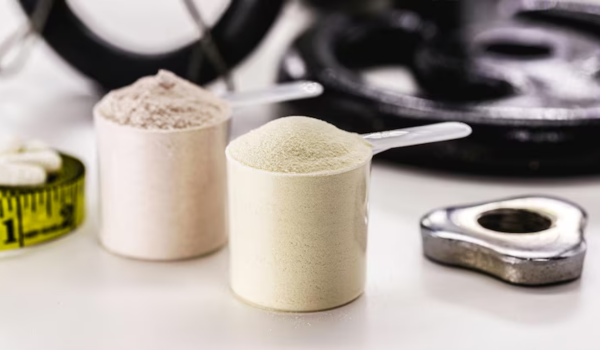Is Collagen a Complete Protein? Discover the Science
Is Collagen a Complete Protein? The Truth About This Popular Supplement

In the ever-evolving world of wellness and nutrition, collagen has quickly risen through the ranks to become one of the most talked-about supplements on the market.
It’s praised for its potential to improve skin elasticity, reduce wrinkles, strengthen joints, support gut health, and even contribute to stronger nails and hair.
But as more people integrate collagen peptides into their daily routines, an important nutritional question arises:
Is collagen a complete protein?
This blog post will explore that question in depth. We’ll break down what makes a protein “complete,” analyze collagen’s amino acid profile, explore the benefits of collagen supplementation, and finally, help you understand how to incorporate collagen into your life the smart way without compromising your overall nutritional needs.
What Is Collagen?
Before diving into whether collagen is a complete protein, let’s take a moment to understand what collagen actually is.
Collagen is the most abundant protein in the human body, accounting for about 30% of total protein content. It’s a structural protein found in skin, bones, tendons, ligaments, cartilage, and connective tissues.
In simpler terms, collagen is the glue that holds your body together quite literally, as its name is derived from the Greek word kólla, meaning “glue.”
There are at least 28 different types of collagen, but five types (I, II, III, IV, and V) make up the majority of what we use and need:
- Type I: Found in skin, tendons, vasculature, organs, and bone.
- Type II: Found in cartilage.
- Type III: Found in reticular fibers, often alongside Type I.
- Type IV: Forms the basis of cell basement membranes.
- Type V: Found in hair and the placenta.
What Is a Complete Protein?
A complete protein is one that contains all nine essential amino acids in sufficient amounts. These amino acids cannot be synthesized by the human body and must be obtained from food. They include:
- Histidine
- Isoleucine
- Leucine
- Lysine
- Methionine
- Phenylalanine
- Threonine
- Tryptophan
- Valine
Complete proteins are crucial for muscle repair, hormone production, enzyme function, and numerous biological processes.
Examples of Complete Proteins:
- Animal sources: Eggs, chicken, beef, dairy, fish
- Plant sources: Quinoa, soy, buckwheat, chia seeds, hemp seeds

So, Is Collagen a Complete Protein?
The short answer is: No, collagen is not a complete protein.
Collagen lacks tryptophan, one of the nine essential amino acids. Additionally, it has low levels of some other essential amino acids, like methionine and isoleucine.
Therefore, it does not provide the full spectrum your body needs to perform all the functions that dietary protein supports.
Collagen’s Amino Acid Profile (Key Highlights):
| Amino Acid | Essential? | Abundant in Collagen? |
| Glycine | No | Yes |
| Proline | No | Yes |
| Hydroxyproline | No | Yes |
| Alanine | No | Yes |
| Arginine | No | Yes |
| Tryptophan | Yes | No |
| Methionine | Yes | Low |
| Leucine | Yes | Low |
| Isoleucine | Yes | Low |
Why This Matters: Protein Quality vs. Protein Function
When people ask if collagen is a complete protein, they’re often concerned about protein quality whether a protein provides all the amino acids needed for full-body nourishment.
But collagen supplementation isn’t necessarily about providing all building blocks for every protein-related function.
Rather, collagen is a functional protein. It delivers high concentrations of specific amino acids especially glycine, proline, and hydroxyproline which are rare in other dietary proteins but vital for forming collagen within the body.
So, while collagen isn’t a complete protein, it’s uniquely valuable for:
- Enhancing skin elasticity
- Supporting joint cartilage regeneration
- Improving wound healing
- Assisting gut barrier function
Collagen’s Role in the Body: More Than Just Beauty
- Skin Health: Multiple studies show collagen peptides can improve skin hydration, elasticity, and reduce wrinkles. These benefits often appear after 8 to 12 weeks of consistent supplementation.
- Joint Health: Collagen Type II in particular has been found to reduce joint pain and improve mobility, especially in athletes or individuals with osteoarthritis.
- Bone Density: Supplementing with collagen may help stimulate bone-forming cells (osteoblasts) and reduce bone breakdown, potentially supporting those at risk of osteoporosis.
- Hair and Nails: There’s anecdotal and preliminary research suggesting collagen may support keratin production, aiding in stronger, healthier hair and nails.
- Gut Health: Glycine and proline found in collagen are thought to help repair the gut lining, which may support those with leaky gut syndrome or inflammatory bowel conditions.
Should You Worry That Collagen Is Incomplete?
Not at all if you’re eating a balanced diet.
Collagen supplements are meant to complement, not replace, complete proteins. If you’re getting enough protein from complete sources like eggs, fish, poultry, dairy, or legumes, then collagen’s incompleteness is a non-issue.
Combining Collagen with Other Proteins
You can easily create a complete protein profile by pairing collagen with other foods:
- Collagen + Greek yogurt
- Collagen + almond butter on whole grain toast
- Collagen + protein shake with whey or pea protein
- Collagen + a meal containing eggs, fish, or chicken
This way, you’re covering your bases with all essential amino acids while still reaping the unique benefits of collagen.

Different Types of Collagen Supplements
- Hydrolyzed Collagen (Collagen Peptides): This is the most common form. It’s broken down into smaller peptides for easier absorption and can be added to hot or cold drinks.
- Gelatin: Less processed than hydrolyzed collagen, gelatin is used in cooking (like jellies and desserts) and gels when cooled.
- Undenatured Collagen (UC-II): Typically derived from chicken cartilage and often found in joint-support supplements.
How Much Collagen Should You Take?
Studies show benefits with doses ranging from 2.5 grams to 15 grams daily depending on the target benefit:
| Goal | Recommended Dose |
| Skin Health | 2.5 – 10 grams |
| Joint Pain | 10 – 15 grams |
| Bone Health | 5 – 10 grams |
| Muscle Support | 15 grams |
Consistency is key. Most users see visible or measurable benefits in 8–12 weeks of daily use.
Best Time to Take Collagen
There’s no universally “best” time, but common timing strategies include:
- Morning: Stir collagen into coffee or tea.
- Pre/Post Workout: Support muscle and joint recovery.
- Evening: Combine with vitamin C-rich foods to support overnight repair.
Vitamin C and Collagen: A Perfect Pair
Your body requires vitamin C to convert proline into hydroxyproline, an essential step in collagen synthesis. Always pair collagen with vitamin C rich foods or a supplement.
Examples:
- Collagen + orange juice
- Collagen + strawberries in a smoothie
- Collagen + bell peppers in your salad
Collagen for Vegetarians and Vegans?
Most collagen is derived from animal sources: bovine (cow), marine (fish), or chicken. Therefore, it’s not suitable for vegetarians or vegans.
However, plant-based collagen boosters are available. These don’t contain collagen but are formulated with:
- Vitamin C
- Zinc
- Silica
- Amino acids
- Antioxidants
They support the body’s natural collagen production rather than supplying it directly.
Conclusion
Collagen is not a complete protein because it lacks tryptophan and contains low levels of several other essential amino acids. However, that doesn’t diminish its unique value.
Unlike traditional protein sources that serve broad physiological roles, collagen delivers a targeted set of amino acids like glycine, proline, and hydroxyproline that are critical for maintaining healthy skin, joints, bones, and connective tissues.
While collagen shouldn’t replace complete proteins in your diet, it serves as a powerful complement to them.
By pairing collagen with a balanced diet rich in essential amino acids, you can enjoy both the foundational support of complete proteins and the specialized benefits of collagen supplementation.
.